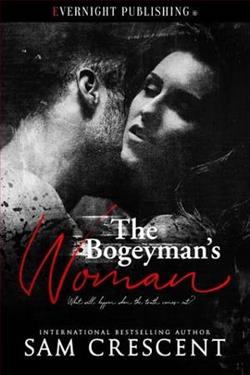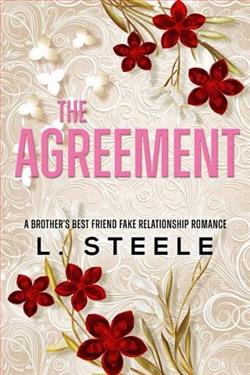Page 50 of Silent Grave
Sheila leaned forward. "Why would they do that?"
"Think about it," Sullivan said. "If they officially closed sections of the mine due to depleted resources, they wouldn't have to follow safety regulations or pay union wages to extract what remained. They could use unofficial crews, keep the profits off the books. Frank Whitman would have known everything about those illegal operations. He had his fingers in every piece of it." Papers shuffled again. "But that's not the darkest part of his story."
"What do you mean?"
"Frank had a son. Peter. Born in '62 or '63, I think. The boy's mother died in a collapse in '70—one of the accidents Frank helped cover up." Sullivan's voice grew softer. "After that, people started noticing things. Bruises on the boy. Times when Peter would disappear for days, only to show up at school looking... different. Haunted."
"Was anything ever done?" Finn asked.
"This was the seventies. People didn't interfere in family matters, especially not with someone as powerful as Frank Whitman." A heavy sigh. "But miners would talk about hearing things in the tunnels at night. A child crying. Religious verses being shouted. Frank claimed he was teaching his son about faith, about facing darkness to find God's light."
Sheila felt her stomach turn. "He was using the mines to punish his son."
"That was the rumor. Some said Frank had his own private entrance to the mine system, a place where he'd take Peter for these... lessons." Another pause. "Then in '77, Frank disappeared. People assumed he'd finally had enough of the failing mining industry, moved away to start fresh. But..."
"But?" Sheila asked.
"His body was never found. No forwarding address, no bank activity, nothing. He just vanished." The sound of more papers being moved. "Here's something interesting—after Frank disappeared, Peter spent almost a year living with his uncle before leaving town. The uncle reported Peter had changed, become obsessed with the mines. Said the boy would vanish for days at a time, claiming he was 'learning what the darkness had to teach.'"
Sheila exchanged looks with Finn. "Do you have any photos? Of either Frank or Peter?"
"Just one. A group shot from '76 at the mine entrance. Frank's in it, and I think that's Peter standing behind him, though his face is partly hidden." A drawer opened. "I can scan it to you."
"Please." Sheila's mind was racing. "What happened to Peter after he left town?"
"Military, according to his uncle's statement. Special forces, I think. After that..." Sullivan trailed off. "After that, nothing. At least nothing in my records."
But Sheila barely heard him. Special forces. Military training. Just like Ray had said about the man who bought the night vision goggles.
"One more thing," she said. "This private entrance you mentioned—any idea where it might have been?"
"I wish I did," Sullivan said. "The miners who knew about it are long gone. Frank would have kept it secret—it was his private domain, his place of..." He didn't finish the thought. "I'll keep looking through the records, see if I can find anything else about the Whitmans."
After ending the call, Sheila grabbed her jacket. "The Whitman house," she said to Finn. "You know where it is?"
"Up on Cedar Ridge. Been abandoned for years, but..." He paused. "You think Peter might have returned?"
"If he's our killer, he'd want to be close to the mines." She checked her weapon, more out of habit than necessity. "And where better to hide than a place everyone's forgotten?"
They headed for her vehicle, the air sharp with approaching winter. As they pulled out of the lot, Sheila thought about Peter Whitman, about a boy whose father had used darkness as both punishment and twisted sacrament.
Now that boy was a man. And he was teaching his own lessons about darkness.
The question was: Would they find him before Diana Martinez became another of his students?
CHAPTER TWENTY THREE
Michelle shifted from foot to foot in the cold mountain air, checking the address on her clipboard against the small cabin's worn numbers. Most of the homes on her list had been in town, but Sarah Riggs had insisted they canvas the outskirts too.
"These mountain folks understand the dangers better than anyone," she'd said.
The cabin looked well-maintained despite its isolation. Smoke curled from the chimney, and fresh bootprints had left mud on the wooden steps.
Still, something about the place made her uneasy. Maybe it was the heavy steel bars on the windows, or how forbidding the unpainted door looked.
"Just get the signature," she muttered to herself. She had a lot of signatures to get by noon, and it was already ten o'clock, so there was no time to waste.
She knocked, the sound oddly muffled by the heavy door. Nothing happened for a long moment, then footsteps approached from inside.















